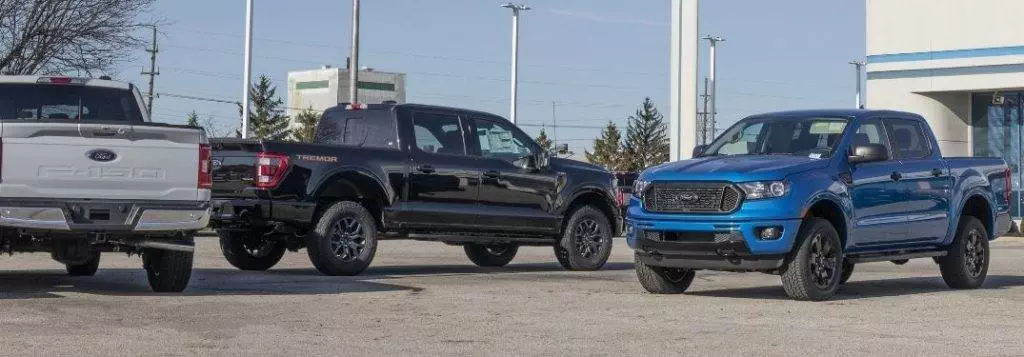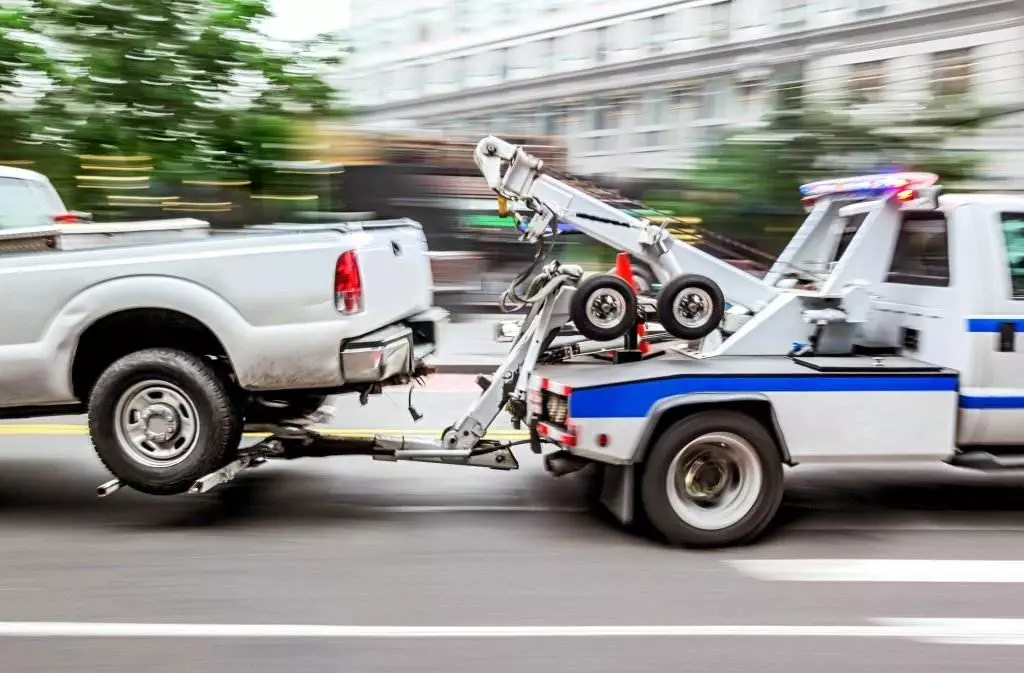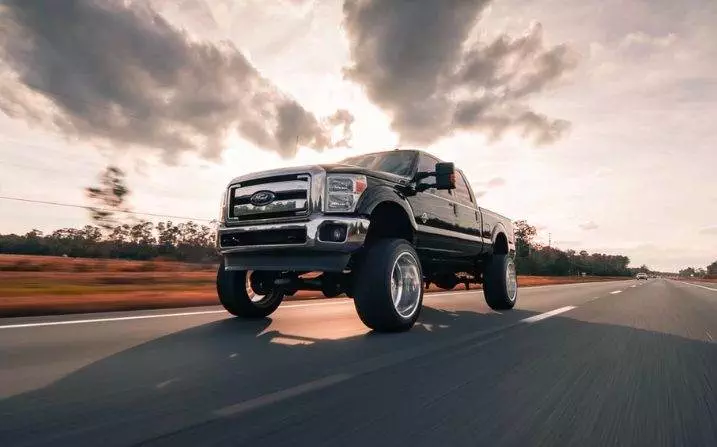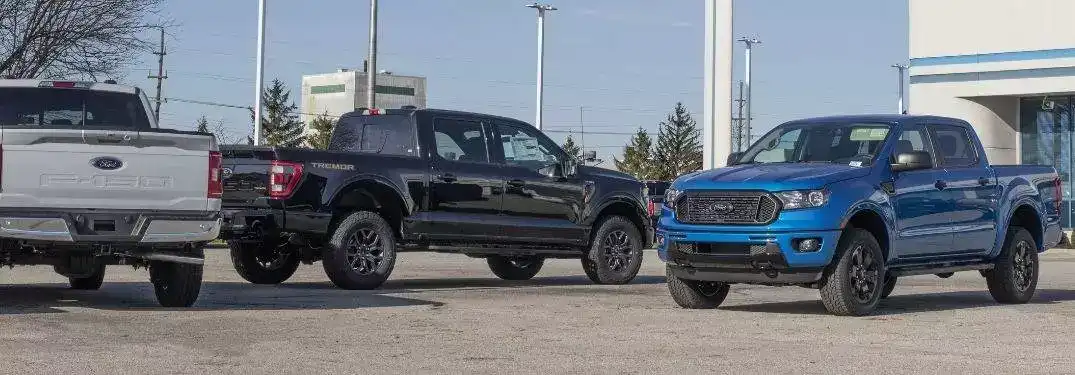When it comes to towing heavy loads, there’s no denying that trucks have the upper hand. But have you ever wondered why? In this article, we’ll take a closer look at the factors that make trucks the superior choice for towing, from their powerful engines to their sturdy frames. So, if you’ve ever marveled at how effortlessly a truck can haul a boat or a camper, read on to discover the secrets behind their towing prowess.

This image is property of torqueinfo.com.
Engine Power
Trucks have more powerful engines
One of the main reasons why trucks are better at towing than cars is their more powerful engines. Trucks are built with larger and more robust engines that are specifically designed to handle heavy loads. These powerful engines produce a significant amount of torque, which is essential for towing capacity and performance.
Higher torque provides better towing capacity
Torque is the rotational force produced by the engine. It is what allows a vehicle to tow heavy loads and climb steep inclines. Trucks, with their higher torque output, have a greater towing capacity compared to cars. This means they can effortlessly haul heavier trailers and carry larger loads without straining the engine or sacrificing performance.
Greater horsepower allows for faster acceleration
In addition to higher torque, trucks also boast greater horsepower, which enables them to accelerate quickly while towing. The extra horsepower ensures that the truck can easily pick up speed and maintain the necessary momentum when pulling a heavy trailer. This not only improves towing efficiency but also enhances safety on the road, allowing for smooth merging and maneuvering.
Frame Strength
Truck frames are designed for heavy loads
When it comes to towing, the strength of the frame is crucial. Trucks are specifically constructed with sturdy frames that are designed to tackle the demands of heavy loads. The frames are built to withstand the stress and strain of towing, ensuring the structural integrity of the vehicle remains intact even under extreme conditions.
Rigid frames minimize sagging or bending during towing
Truck frames are engineered to be rigid and resistant to sagging or bending. This characteristic is vital when towing, as it helps maintain the stability and control of the vehicle. The rigid frame prevents excessive flexing, ensuring that the truck and the trailer remain in proper alignment throughout the towing process.
Strengthened suspension system supports the weight of heavy trailers
To further enhance towing capabilities, trucks are equipped with strengthened suspension systems. These systems play a critical role in supporting the weight of heavy trailers and maintaining proper balance and stability. The suspension components, such as springs and shock absorbers, are specifically designed to handle the additional load, ensuring a smooth and controlled towing experience.
Towing Capacity
Trucks have higher towing capacity than cars
Trucks excel in towing capacity compared to cars. Due to their robust construction, powerful engines, and reinforced components, trucks can handle much larger towing loads than regular passenger cars. This higher towing capacity is a direct result of the engineering and design decisions made to cater to the needs of towing enthusiasts and professionals.
Greater weight rating allows for towing larger loads
Trucks have a higher weight rating, which means they have been tested and approved to haul heavier loads safely. The weight rating takes into account various factors such as the engine power, frame strength, suspension, and braking system, among others. With their greater weight rating, trucks can confidently tow larger trailers and transport heavier cargo, making them the preferred choice for heavy-duty towing tasks.
Specialized towing packages enhance towing capability
Manufacturers offer specialized towing packages for trucks to further enhance their towing capability. These packages typically include upgrades and additions such as larger cooling systems, heavy-duty transmissions, reinforced hitches, and integrated braking systems. Investing in a truck with a towing package ensures that the vehicle is optimized for towing tasks, providing additional peace of mind and performance.
Trailer Stability
Longer wheelbase improves stability while towing
Trucks generally have a longer wheelbase, which contributes to their superior stability while towing. The wheelbase is the distance between the center of the front and rear wheels, and a longer wheelbase results in improved weight distribution and reduced sway. This stability is crucial when navigating turns, windy conditions, or uneven terrain, ensuring a safe and controlled towing experience.
Wider stance reduces sway and improves control
In addition to the longer wheelbase, trucks also have a wider stance compared to cars. The wider track width increases stability and reduces the risk of sway while towing. This additional stability allows the truck to maintain better control over the trailer, minimizing the chances of fishtailing or losing control in challenging towing situations.
Truck design mitigates wind resistance for better stability
Trucks are designed with aerodynamics in mind, specifically to mitigate wind resistance and improve stability while towing. The shape and contours of the truck are carefully crafted to reduce drag and decrease the impact of crosswinds. This design consideration plays a vital role in maintaining the truck’s stability, preventing it from being swayed or pushed around by external forces, providing a safer and more comfortable towing experience.

This image is property of cdn-ds.com.
Braking Power
Trucks have larger, more robust braking systems
To effectively control the additional weight while towing, trucks are equipped with larger and more robust braking systems. The increased size of the brake components, such as rotors and calipers, allows for greater braking force to be applied, resulting in safer and more controlled stops. The enhanced braking power provides the driver with confidence and peace of mind, knowing that they can bring the combined weight of the truck and the trailer to a halt efficiently.
Better braking power allows for safer and controlled stops
The improved braking power of trucks plays a significant role in ensuring safe and controlled stops, especially when towing heavy loads. The ability to brake efficiently reduces the stopping distance and allows the driver to react promptly to any unexpected situations on the road. This enhanced braking capability is essential for maintaining safety, preventing accidents, and protecting the occupants of both the truck and the trailing vehicle.
Brake upgrades are available for heavier towing requirements
For those who frequently tow extremely heavy loads, brake upgrades are available to further enhance the braking power of trucks. These upgrades typically include larger brake discs, high-performance brake pads, and advanced brake systems, specifically designed to handle the additional demands of heavy towing. Upgrading the brakes ensures that the truck can effectively manage the increased weight, enhancing both safety and control while on the road.
Cooling Systems
Trucks are equipped with larger and more efficient cooling systems
Towing heavy loads can put a significant strain on the engine and transmission, generating excess heat. To counteract this, trucks are equipped with larger and more efficient cooling systems. The cooling systems consist of radiators, fans, and coolant circulation mechanisms designed to dissipate the heat generated during towing, ensuring the engine and transmission remain within their optimal operating temperatures.
Enhanced cooling prevents engine overheating while towing
The enhanced cooling systems in trucks prevent engine overheating, a common issue that could arise during prolonged towing. The increased capacity to dissipate heat efficiently prevents the engine from operating at high temperatures, reducing the risk of damage and costly repairs. The ability to maintain optimal operating temperatures enhances the performance and longevity of the truck, ensuring a reliable towing experience.
Transmission coolers help maintain optimal performance
Trucks are often equipped with transmission coolers, which directly contribute to maintaining optimal performance while towing. Transmission coolers help dissipate excess heat generated by the transmission, protecting it from overheating. By reducing the operating temperatures of the transmission, these coolers ensure that the transmission fluid remains within its optimal range, safeguarding against potential damage and ensuring smooth gear shifting and overall performance.

This image is property of www.hollywoodtowing.com.
Transmission
Trucks have stronger transmissions for towing
Recognizing the demands of towing, trucks are equipped with stronger transmissions specifically built to handle the increased torque and workload. These transmissions are designed to provide better durability, reliability, and performance while towing heavy loads. The robust construction and upgraded internal components of the transmission ensure that it can withstand the additional stress, delivering smooth power delivery to the wheels.
Specialized transmission modes improve towing performance
Trucks often come with specialized transmission modes that allow drivers to optimize the transmission’s performance for towing. These modes, such as tow/haul mode, adjust the shift points, throttle response, and torque converter lockup to maximize towing efficiency. The transmission modes ensure that the engine operates within the appropriate power band, providing optimal power delivery and torque output for towing heavy loads.
Transmission fluid cooling prevents overheating during towing
Trucks employ transmission fluid cooling systems to prevent overheating during intense towing. The additional load and heat generated while towing can cause the transmission fluid to reach high temperatures, potentially leading to damage. Transmission fluid coolers help regulate the temperature of the fluid, dissipating excess heat and maintaining the fluid’s viscosity and lubrication properties. By preventing overheating, these cooling systems ensure the longevity and performance of the transmission during towing.
Towing Features
Trucks offer features specifically for towing
Trucks are equipped with various features and technologies designed specifically for towing. These features enhance both safety and convenience, making the towing experience more enjoyable.
Integrated trailer brake controllers enhance safety
One of the essential features found in many trucks is the integrated trailer brake controller. This controller enables the driver to activate the brakes on the trailer using the truck’s brake system. By synchronizing the truck and trailer braking, this feature improves safety and control while towing. The integrated trailer brake controller ensures that the braking force is distributed evenly, preventing excessive strain on either the truck or the trailer’s braking system.
Towing mirrors provide better visibility for maneuvering
Trucks are often equipped with towing mirrors, which offer a broader range of visibility for maneuvering while towing. These mirrors feature an extended design, allowing the driver to see beyond the width of the trailer, minimizing blind spots. The enhanced visibility provided by towing mirrors enables the driver to make safer lane changes, back up with precision, and have a clear view of the surrounding traffic, ultimately improving towing safety and convenience.

This image is property of www.dyeautos.com.
Durability and Reliability
Trucks are built with rugged construction for heavy-duty use
Trucks are renowned for their rugged construction, making them highly durable and reliable for heavy-duty use, including towing. The manufacturers invest in the design and engineering of trucks with robust materials and construction methods, ensuring that they can withstand the demands of towing heavy loads over extended periods. The sturdy build quality of trucks contributes to their longevity and overall reliability, making them a dependable choice for towing tasks.
Designed to withstand demanding towing conditions
Trucks are purpose-built to withstand demanding towing conditions such as steep inclines, rough terrains, and challenging weather conditions. The engineering and design decisions focus on creating a vehicle with the necessary strength, power, and capabilities to tackle various towing scenarios. From reinforced frames to heavy-duty suspension systems, every aspect of the truck’s design aims to provide durability and reliability during the most demanding towing conditions.
Engineered to last longer under heavy load
Trucks are engineered to withstand the added stress and strain of towing heavy loads. The components are designed with higher weight tolerances, ensuring that they can handle the demands of hauling and towing large trailers. From the engine to the drivetrain, the truck’s engineering takes into account the increased load, providing a reliable and long-lasting vehicle for towing purposes. The durability and longevity of trucks under heavy loads contribute to their superior towing capabilities.
Versatility
Trucks can be used for a wide range of towing tasks
One of the significant advantages of trucks for towing is their versatility. Trucks are designed to handle a wide range of towing tasks, catering to various needs and preferences. Whether it’s towing a small camper trailer for a weekend getaway or hauling heavy construction equipment for a job site, trucks offer the flexibility to tackle different towing requirements. This versatility makes trucks a popular choice for individuals, families, and businesses needing to transport cargo or travel with trailers.
Ability to tow various trailer types
Trucks have the ability to tow various trailer types, depending on the needs of the driver. From utility trailers and horse trailers to boat trailers and recreational vehicles, trucks can accommodate a diverse range of trailers. The towing capabilities of trucks allow for a broader range of activities and adventures, from outdoor recreation to professional hauling, making them a practical and versatile choice.
Availability of different hitch options and towing accessories
To further enhance their towing capabilities, trucks offer a wide array of hitch options and towing accessories. Whether it’s a conventional receiver hitch, a gooseneck hitch, or a fifth-wheel hitch, trucks can be equipped with the appropriate towing mechanism to suit specific trailer types. Additionally, towing accessories such as weight distribution systems, sway control devices, and trailer wiring harnesses provide added safety and convenience while towing. The availability of different hitch options and accessories makes trucks customizable to individual towing needs.

This image is property of static.tweaktown.com.